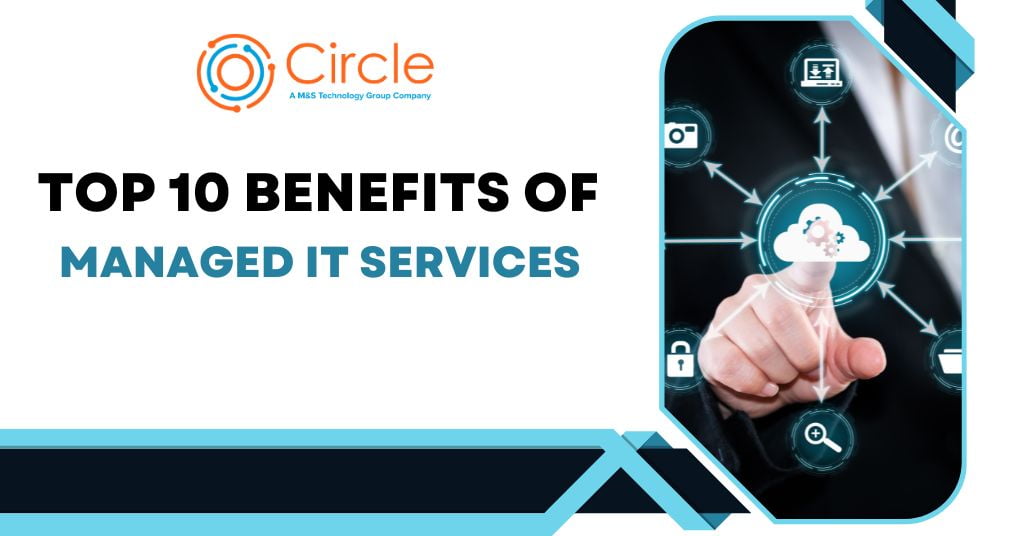
In today’s digital landscape, Businesses rely on technology to streamline operations, enhance productivity, and gain a competitive edge. However, managing complex IT infrastructure and staying abreast of rapidly evolving technological trends can be daunting for organizations, especially those with limited resources and expertise. This is where managed IT services come into play as a crucial solution for businesses looking to optimize their IT operations while staying focused on their core business objectives. This article will explore the top 10 benefits of Managed IT services that help businesses succeed in today’s competitive marketplace.
1: Improved IT Budgeting
Managed IT services offer businesses predictable and transparent costs, enabling better budget planning and allocation. Organizations can avoid unexpected IT infrastructure maintenance, upgrades, and support expenses with fixed monthly fees or pay-as-you-go models. This proactive approach to IT budgeting allows businesses to allocate resources more efficiently, ensuring that IT investments align with strategic objectives and growth initiatives.
2: Faster Response Time
One of the primary benefits of managed IT services is the quick response time offered by dedicated support staff. Businesses can rely on skilled specialists to quickly assess and repair technical issues or system faults, reducing downtime and potential losses. Whether it’s fixing software issues, hardware failures, or network disruptions, quick response times assure continuous operations and peak performance.
3: Data Compliance Support
Managed IT services are critical in assisting organizations to negotiate complex legal frameworks and preserve sensitive information in an era of severe data protection legislation and compliance requirements. Managed service providers (MSPs) provide data compliance knowledge ranging from GDPR to HIPAA, ensuring that organizations follow industry regulations, avoid penalties, and keep consumer trust. MSPs help decrease the risks of data breaches and regulatory noncompliance by installing strong data security measures and conducting frequent audits.
4: Security Awareness Training
Cybersecurity threats pose a significant risk to businesses of all sizes, making security awareness training an essential component of managed IT services. MSPs educate employees about common cyber threats, phishing scams, and best practices for maintaining secure digital environments. By fostering security awareness, businesses can empower employees to identify and mitigate potential risks, reducing the likelihood of data breaches, ransomware attacks, and other cybersecurity incidents.
5: IT Vendor Management
Managing multiple IT vendors can be daunting for businesses, often leading to inefficiencies, delays, and communication breakdowns. Managed IT services to streamline vendor management processes by serving as a single point of contact for all IT-related vendors. Whether it’s hardware suppliers, software developers, or cloud service providers, MSPs coordinate vendor relationships, negotiate contracts, and ensure seamless integration of products and services, thereby simplifying procurement and reducing administrative burdens.
6: Cost-Efficiency
Outsourcing IT services to managed service providers is significantly less expensive than maintaining an in-house IT group. MSPs provide cost-effective solutions for infrastructure management, software licensing, and technical support by taking advantage of economies of scale and specialized knowledge. Businesses can avoid the overhead costs of employing, training, and retaining IT personnel while obtaining access to innovative technologies and industry best practices at a lower cost.
7: Streamline Your Productivity
Managed IT services enable businesses to streamline operations and enhance productivity by optimizing IT workflows and eliminating bottlenecks. From proactive monitoring and maintenance to automated software updates and patch management, MSPs ensure that IT systems work smoothly, allowing employees to focus on core business activities without interruption. By reducing downtime, minimizing system errors, and improving user experience, managed IT services contribute to overall productivity and business performance.
8: Provide Scalability
Scalability is essential for businesses adapting to changing market dynamics and accommodating growth opportunities. Managed IT services offer scalable solutions that quickly scale up or down according to business needs and seasonal fluctuations. Whether expanding IT infrastructure to support a growing workforce or transitioning to cloud-based solutions for increased flexibility, MSPs provide agile and scalable IT solutions that align with business objectives and future growth trajectories.
9: Increase ROI and Reduce Risk
Investing in managed IT services yields a high return on investment (ROI) by optimizing IT operations, enhancing security, and driving business innovation. By outsourcing IT management to experienced professionals, businesses can reduce the Risk of costly downtime, data breaches, and compliance violations, thereby protecting their bottom line and preserving brand reputation. Moreover, MSPs help businesses leverage emerging technologies and digital trends to gain a competitive edge and capitalize on new market opportunities, enhancing ROI and reducing Risk.
10: Maximize Cloud Computing Capabilities
Cloud computing has transformed how businesses store, access, and manage data by enabling scalability, flexibility, and cost-efficiency. Managed IT services help companies to migrate to the cloud, optimize cloud infrastructure, and manage cloud-based applications and services, all of which contribute to maximizing cloud computing capabilities. Whether in public, private, or hybrid cloud environments, MSPs offer expertise in cloud strategy, deployment, and governance, allowing businesses to leverage cloud technology for innovation and growth fully.

Conclusion
The benefits of managed IT services are undeniable, offering businesses a strategic advantage in today’s competitive landscape. By partnering with Circle MSP, a trusted managed IT service provider, businesses can unlock new opportunities for growth, innovation, and sustainable long-term success in the digital era.
